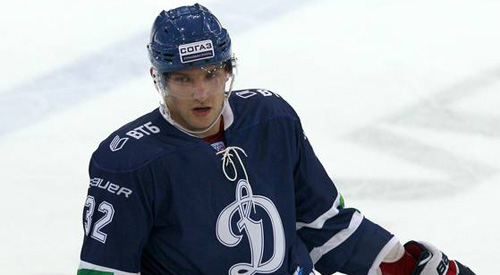
The KHL threat is overrated
Let’s be clear. This opinion doesn’t arise from a pro-North American, staunchly-nationalistic point of view akin to the sentiments of many Canadians during the Cold War era.
Instead, it is simply an unfiltered look at the realities of both the NHL and KHL.
As things stands right now, the NHL is embroiled in both a lockout and a public relations battle (way to trumpet the 50/50 hockey-related revenue split, Mr. Bettman) with its union, the NHLPA.
Across the pond, the KHL is, according to the opinions of many trusted hockey minds, beginning to thrive.
After a shaky start in 2008, the KHL has found slightly more stable footing and is beginning to resemble a professional hockey league. With average attendance rising (albeit slightly since its inception) and the backing of deep-pocketed Russian business moguls, Russia is beginning to carve out a niche for itself.
And right now, that niche represents the best alternative hockey option for players who find they are looking for opportunities outside of the NHL – even those who are talented enough to play in it.
While the KHL has indeed enjoyed added publicity due to this ongoing lockout, with notable players including Alex Ovechkin and Evgeni Malkin suiting up for teams back in their homeland, the idea that it will – or even can – challenge the NHL as the premier hockey league in the world is asinine.
[php snippet=1]
That the KHL has made strides over the past few years is not in dispute. What is, however, is the notion that it has what it takes to usurp the NHL, a league (and business) that has existed for nearly 100 years.
With many organizations in the league playing in run-down, decrepit buildings that are only capable of housing 5,000-7,500 fans at maximum capacity, money certainly doesn’t come from ticket sales. Instead, those aforementioned deep-pocketed moguls and business corporations keep the cash flowing through the league. As such, organizations become status symbols as opposed to investments in companies with a sustainable business model.
With some big names choosing to play in Russia during the NHL lockout, North American fans have been given a taste of the KHL’s finesse game thanks to coverage provided by ESPN and TSN. Still, the day you hear someone in North America say “Let’s get together and watch the KHL game,” isn’t coming anytime soon.
Therein lies a major stumbling block for the KHL in its quest for hockey supremacy. Without a successful long-term business plan, it can’t compete with the glitz and glamour the NHL provides. From the lofty price tags for television rights to the refined broadcast package in which NHL games are wrapped, not to mention the in-game experience teams have perfected for fans lucky enough to see NHL games live, the KHL is nothing more than a young kid trying to keep up with the big boys. The ambition is admirable, but the braggadocio does it no favors.
Russian stars such as Alex Ovechkin and Ilya Kovalchuk have recently threatened to stay in the KHL should the new Collective Bargaining Agreement greatly reduce their salaries. Not to pick on the Russian stars’ mentalities, but it’s a sad message to send; that playing hockey is all about the money. Then again, that’s all the KHL really has to offer at this point, with a tax-free incentive in some cases.
However, the fact of the matter is that making such a threat helps neither player in the long run. If they flee the NHL, rightly or wrongly, they’ll be looked upon as players who played only for money as opposed to hockey glory. The North American hatemongers would love nothing more than a chance to deem them “typical Russians” and their place in hockey lore would be relegated to the “what could have been” section.
There were 31 Russians who suited up for NHL games during the 2011-12 NHL season. Of those 31, only four contribute serious star power to the NHL product: Evgeni Malkin and Pavel Datsyuk, along with Ovie and Kovie.
The departure of players of their caliber would certainly hurt the NHL in some respects. With Ovie having been marketed as Sidney Crosby’s arch-rival and his appeal to fans around the league, his loss would be significant. But even in the event that all four of those Russian players decided to never again play an NHL game (and after Malkin’s tumultuous defection, it’s clear he wants to be in the NHL), the league would recover. There is far too much non-Russian star power for it to ever crumble under the so-far empty threats from some of its top talents hailing from Russia.
As for players of other nationalities using KHL offers as leverage, or an actual star signing on to play in the KHL and starting a mass exodus, the ideas are just too far-fetched. Just as Russian players may revel in the comforts of playing at home, so too would those born in North America. Therefore, the North American-based NHL will continue to thrive even in the wake of the KHL’s ascension on the global hockey scene.
Beyond the money, ritzy hotels, private chartered flights and comforts of playing in a familiar environment, the NHL is more than anything else a proving ground. The best of the best from around the world compete in a league designed for only the most elite hockey players, and whether the KHL likes it or not, the Russian startup is a long way from ever resembling anything as polished as the NHL.
[php snippet=1] http://credit-n.ru/zaymyi-next.html

